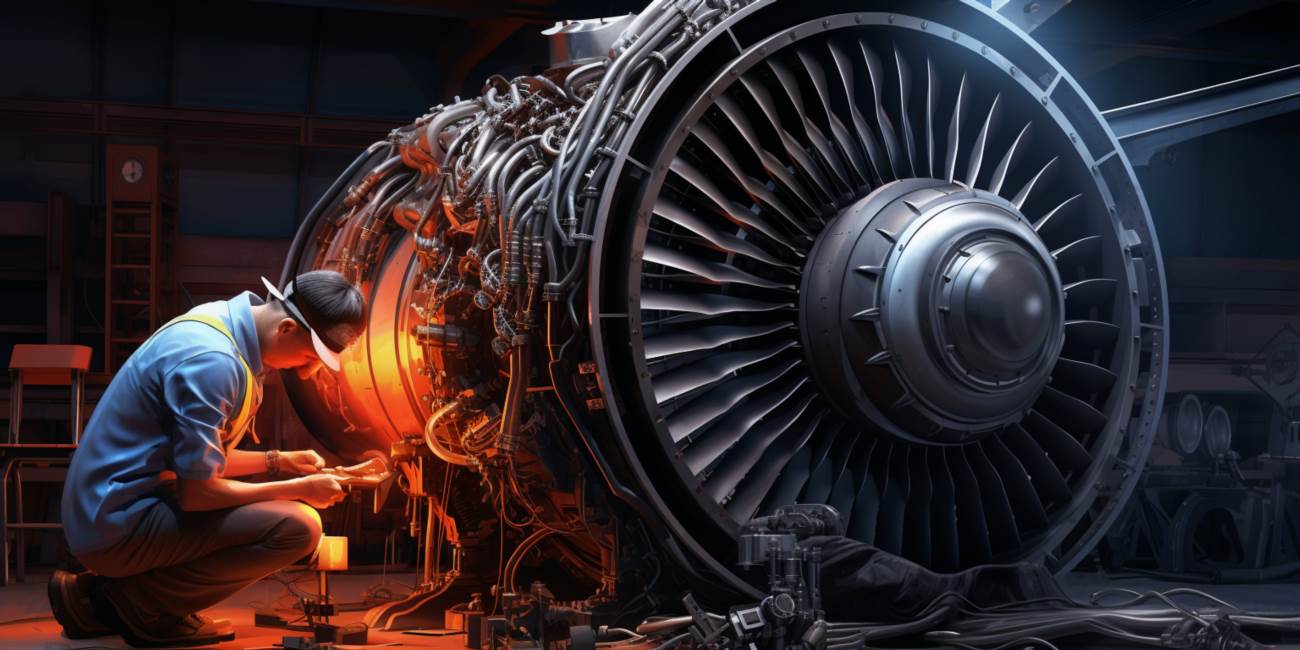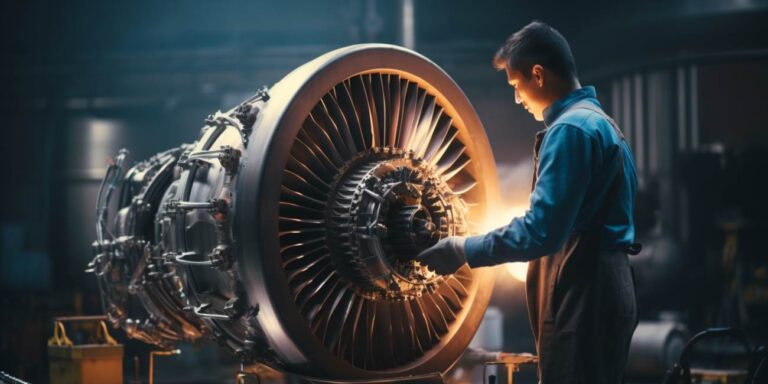For those embarking on this exciting journey, entry-level positions typically offer a starting salary in the range of $60,000 to $80,000 annually. However, as you gain experience and expertise, the earning potential significantly increases. Experienced aircraft engineers with a solid track record can command salaries well into the six-figure range, reaching an impressive $100,000 or more.
Education plays a crucial role in determining aircraft engineer salaries. A bachelor’s degree in aerospace engineering or a related field is the usual entry point. Those with advanced degrees or additional certifications often enjoy a competitive edge in the job market and can negotiate higher salaries.
The aerospace industry itself is a major factor influencing earnings. Engineers working for leading aircraft manufacturers, such as Boeing or Airbus, tend to earn higher salaries compared to those employed by smaller companies or regional airlines. It’s important to consider the potential for career growth and financial advancement when choosing a specific sector within the aerospace field.
Location is another critical aspect affecting aircraft engineer compensation. Salaries can vary significantly based on geographic location, with engineers in metropolitan areas generally earning more than their counterparts in smaller towns or rural areas. Factors such as the cost of living and demand for aerospace professionals in a particular region contribute to these salary discrepancies.
It’s worth noting that the aviation industry is dynamic, and technological advancements continually reshape the landscape. Engineers with expertise in emerging technologies, such as unmanned aerial vehicles (UAVs) or electric propulsion systems, may find themselves in high demand, leading to increased earning potential.
For a more detailed breakdown of aircraft engineer salaries, the table below provides an overview of average annual incomes at different career stages:
| Career Stage | Average Salary |
|---|---|
| Entry-Level | $60,000 – $80,000 |
| Mid-Level | $80,000 – $100,000 |
| Experienced | Over $100,000 |
Why aircraft engineers are among the top paid engineering professionals
Being an aircraft engineer is not just a job; it’s a high-flying adventure in the world of engineering. These professionals are not only responsible for the design and maintenance of aircraft, but they also enjoy being among the top-paid individuals in the engineering realm. So, why exactly do aircraft engineers find themselves at the pinnacle of the engineering salary pyramid?
First and foremost, the complexity of the aircraft systems demands a unique set of skills that only a specialized engineer possesses. Aircraft engineers are not your run-of-the-mill engineers; they are the architects of the skies, dealing with intricate designs, cutting-edge technologies, and ensuring the safety of thousands of passengers soaring through the clouds. The level of expertise required to navigate through the challenges of aircraft engineering sets them apart.
One of the key reasons for the hefty paychecks is the rigorous education and training aircraft engineers undergo. These professionals typically hold degrees in aerospace engineering or a related field, and many pursue advanced degrees to enhance their knowledge. The combination of theoretical understanding and hands-on experience in state-of-the-art facilities makes them invaluable assets to the aviation industry.
Continuous learning is not just a choice for aircraft engineers; it’s a way of life. Given the rapid advancements in aviation technology, staying up-to-date with the latest developments is crucial. Employers recognize the importance of this, and as a result, they are willing to compensate aircraft engineers handsomely for their commitment to staying at the forefront of the field.
Moreover, the aviation industry operates under strict safety regulations. Aircraft engineers play a pivotal role in ensuring that every component, from the engines to the landing gear, meets and exceeds these safety standards. The responsibility they bear is immense, and rightfully so. This dedication to safety doesn’t go unnoticed, and companies are willing to pay a premium for the assurance that their aircraft are in the hands of highly skilled and meticulous professionals.
The demand for air travel is on a constant rise, and with it, the demand for competent aircraft engineers is soaring. This supply-demand imbalance puts aircraft engineers in a favorable position when it comes to negotiating their salaries. Companies are well aware that a shortage of skilled professionals could potentially lead to delays, increased maintenance costs, and compromises in safety — consequences they are not willing to risk.
Let’s not forget the global nature of the aviation industry. Aircraft engineers are not confined to a specific region; they are sought after around the world. This global demand further drives up their market value, as companies compete to attract the best talent, offering competitive salaries and perks to secure the services of these highly skilled individuals.
What exact skills and education you need to become an aircraft engineer

To embark on a career as an aerospace engineer, a solid educational foundation is paramount. The first milestone is obtaining an aeronautical engineering degree. This specialized degree delves into the intricacies of designing and maintaining aircraft, providing a comprehensive understanding of aerodynamics, propulsion systems, and structural analysis.
While an aeronautical engineering degree lays the groundwork, securing FAA certification is the next crucial step. The Federal Aviation Administration (FAA) certification is mandatory for individuals involved in the design, production, and maintenance of aircraft. It signifies compliance with stringent safety and quality standards set by the aviation regulatory body in the United States.
Once armed with an aeronautical engineering degree and FAA certification, aspiring aircraft engineers must hone their maintenance skills. Proficiency in maintenance is not only about fixing issues but preventing them through meticulous inspections and routine checks. This skill set involves a keen eye for detail and the ability to troubleshoot complex mechanical and electronic systems.
The maintenance skills encompass a spectrum of tasks, from overhauling engines to ensuring avionics systems operate seamlessly. Aircraft engineers must be adept at diagnosing problems, performing repairs, and conducting regular maintenance to uphold the safety and reliability of the aircraft. This hands-on experience is often gained through apprenticeships or on-the-job training.
While an aeronautical engineering degree provides theoretical knowledge, and FAA certification ensures regulatory compliance, maintenance skills are the practical cornerstone of an aircraft engineer’s expertise. The dynamic nature of aviation demands a continuous learning process to stay abreast of technological advancements and industry regulations, making ongoing professional development a vital aspect of a successful career in this field.
Which aircraft engineering jobs pay the most money
When it comes to aircraft engineering jobs, the aviation industry offers a spectrum of opportunities, with some positions commanding substantial salaries. Senior positions in aircraft engineering are particularly lucrative, reflecting the wealth of experience and expertise these roles demand.
Within the realm of commercial airlines, aircraft engineers play a pivotal role in ensuring the safety and functionality of the fleet. Their responsibilities encompass everything from routine maintenance to troubleshooting complex technical issues. The demand for skilled professionals in this sector has driven the salaries for senior positions to impressive heights.
For those eyeing a career in aircraft engineering with a focus on financial rewards, commercial airlines stand out as primary employers. The competitive nature of the industry translates into attractive compensation packages for experienced individuals occupying senior positions.
However, the landscape of high-paying aircraft engineering jobs extends beyond the confines of commercial aviation. Defense contractors also offer enticing opportunities for seasoned professionals seeking challenging roles with commensurate pay. These positions often involve cutting-edge technologies and projects crucial to national security.
Working with defense contractors in aircraft engineering means engaging with sophisticated systems and contributing to the development of state-of-the-art aircraft. The complexity and critical nature of these projects are reflected in the salaries associated with senior positions, making them highly sought after by industry experts.
Table: Average Salaries for Aircraft Engineering Senior Positions
| Industry | Average Salary |
|---|---|
| Commercial Airlines | $120,000 – $180,000 per annum |
| Defense Contractors | $150,000 – $220,000 per annum |
It’s evident that both commercial airlines and defense contractors recognize the value of experience and expertise in aircraft engineering by offering competitive remuneration for senior positions. Aspiring professionals in this field have the opportunity to choose between the dynamic environment of commercial aviation or the strategic projects within the defense sector.






